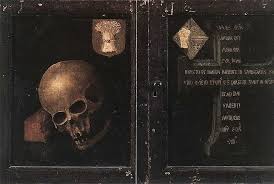
Should religion and poetry be kept in their respective corners like church and state? Yes and no.
First, let’s dispense with the “no.” The Bible is full of poetry–often beautiful poetry. One need only walk through the Song of Solomon among other books to see that. And poems abound at weddings and funerals, most held under the roof of a religious institution.
That said, modern-day poets invoking the heavens often walk a thin line. Coming across as proselytizing or didactic or moralistic can have its costs. Mary Karr is willing to take those risks, however. As someone heavily-invested in the Roman Catholic faith, she invokes religion early and often in her latest book, Tropic of Squalor.
The collection contains 16 free poems, many with religious undertones, followed by a set of 21 titled “The Less Holy Bible.” As an exempli gratia, I give you the last poem in the book, the anchor given the task of representing the book as a whole:
Coda Toward the New New Covenant: Death Sentence
(for Father Joseph Kane)
by Mary Karr
We lean close when the dying speak
though instinct says recoil from
the decaying form, but silence
radiates off them and blooms our loud
selves out, out, out of the way, and we long
to know what from each essential
self will exhale over us, and if we every
single one of us (it would only work
if we all agreed) listened to our own
deaths growing inside us geologically
slow inching forward as the skull
will someday edge through skin, then we would
each speak only the truest lines:
I’ve always loved you.
Memento mori. In Latin, it means “Remember you must die.” In order to “memento” your “mori-ing” reader, however, your poem needs a blend of faith and harsh, physical reality.
As in the opening church and state remark, Karr walks the line here, clearly invoking faith in a greater purpose while also reminding us, through the last breaths of the dying and mention of a skull that will soon transgress the flesh that covers it, that death is not only all around us but within us, no matter how much we wish to kid ourselves by recoiling from it.
Recoil? Lean in, is the message here. Lean closer to your brothers and sisters who are dying because, if the relationship is not clear to you right now, then you’re kidding yourself, of course.
Your death sentence is in every poem you read, somewhere.